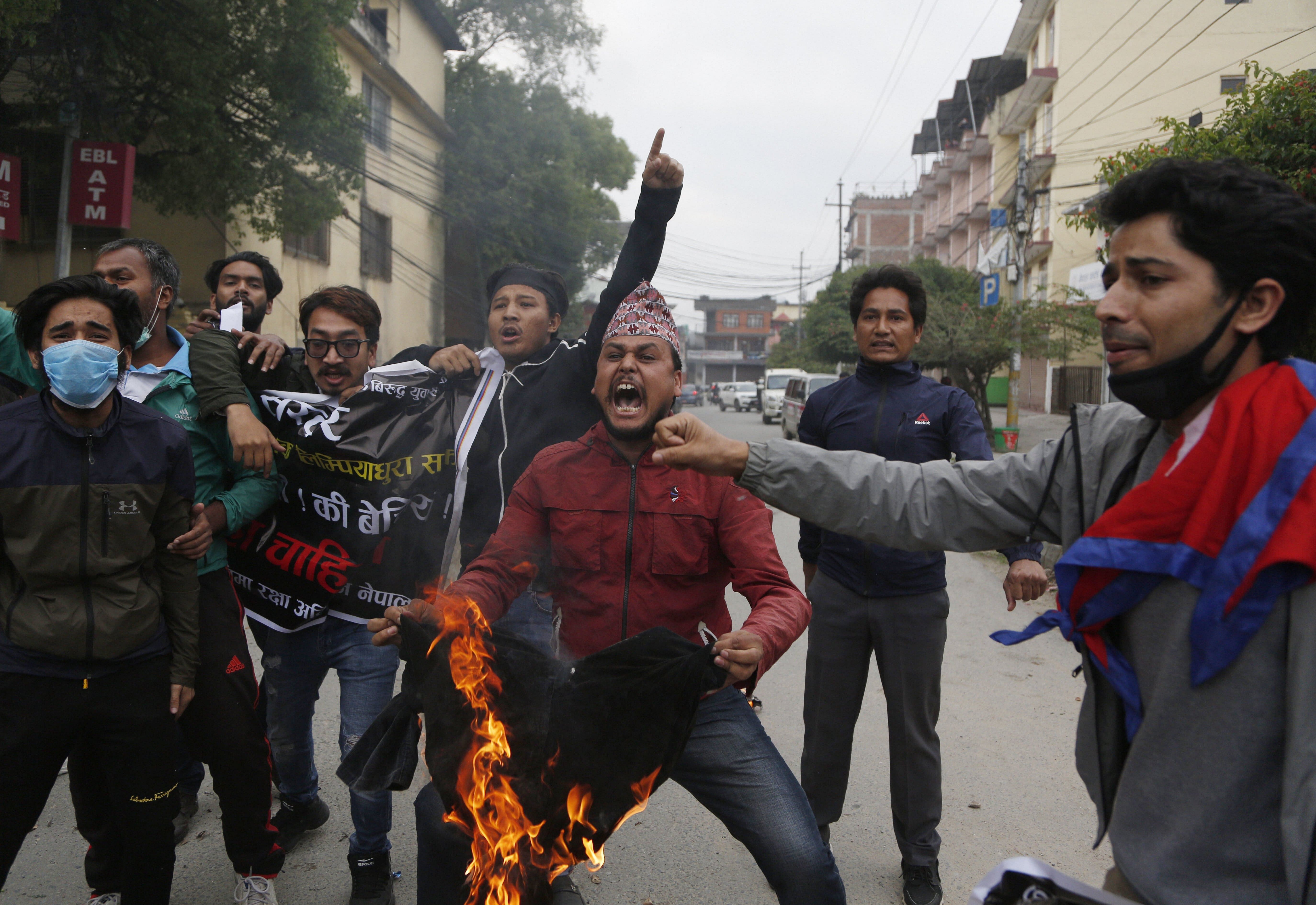
Nepalese Foreign Minister Pradeep Gyawali on Monday summoned New Delhi’s envoy to Kathmandu, Vinay Mohan Kwatra, and handed over to him a diplomatic note, formally objecting to the new strategic road India built to its disputed boundary with China.
With the 80-kilometer-road India built from Dharchula in its Uttarakhand State to Lipulekh Pass near its disputed boundary with China triggered protests across the political spectrum of Nepal, Prime Minister K P Sharma Oli’s Government in Kathmandu too raised its pitch and lodged a formal protest with New Delhi through the diplomatic channel.
Kathmandu has been crying foul ever since Defence Minister Rajnath Singh on Friday had a video-conference from New Delhi to inaugurate the road from Ghatiabgarh in Dharchula and ends in Lipulekh Pass – an India-China-Nepal tri-junction boundary point. The Ministry of Foreign Affairs of the Nepalese Government issued a statement in Kathmandu on Saturday, alleging that the road built by India went through the territory of Nepal and its construction ran against the understanding reached between the two nations that they would resolve the boundary dispute through negotiation.
New Delhi rejected the contention of Nepal, asserting that the new road lay completely within the territory of India. With pressure mounting from within the ruling Nepal Communist Party, Oli’s Government did not relent and summoned India’s ambassador to Nepal to its Ministry of Foreign Affairs. “Foreign Minister Hon. @PradeepgyawaliK conveyed Government of Nepal's position on boundary issues to Ambassador of India to Nepal H.E. Mr. Vinay Mohan Kwatra at a meeting held at MoFA today and handed over a diplomatic note in this regard,” the MoFA of the Nepalese Government posted on Twitter.
The NCP on Sunday issued a statement accusing India of undermining the sovereignty of Nepal by unilaterally building the road through its territory. The statement was signed by both Oli and former Maoist leader Pushpa Kamal Dahal, a.k.a. Prachanda. Oli and Prachanda jointly chair the ruling party of Nepal.
New Delhi suspects that China is nudging Nepal to protest against the road built by India and trying to whip up anti-India sentiment in Nepal.
India and China have been jockeying for influence in Nepal.
A recent squabble within the ruling Nepal Communist Party opened a new opportunity for Beijing not only to expand but also to put on display its influence in the political circles in Kathmandu.
Though the rift between the party’s two chairpersons – Prime Minister K P Sharma Oli and legendary Maoist leader Pushpa Kamal Dahal – came to the fore earlier this month, China’s envoy to Nepal, Hou Yanqi, had a series of meetings with both the leaders as well as other key politicians in the ruling dispensation to avert a flashpoint.
Kathmandu had earlier lodged a protest with both New Delhi and Beijing in 2015, when India and China had agreed to include Lipulekh Pass as a bilateral trade route without the consent of Nepal.
